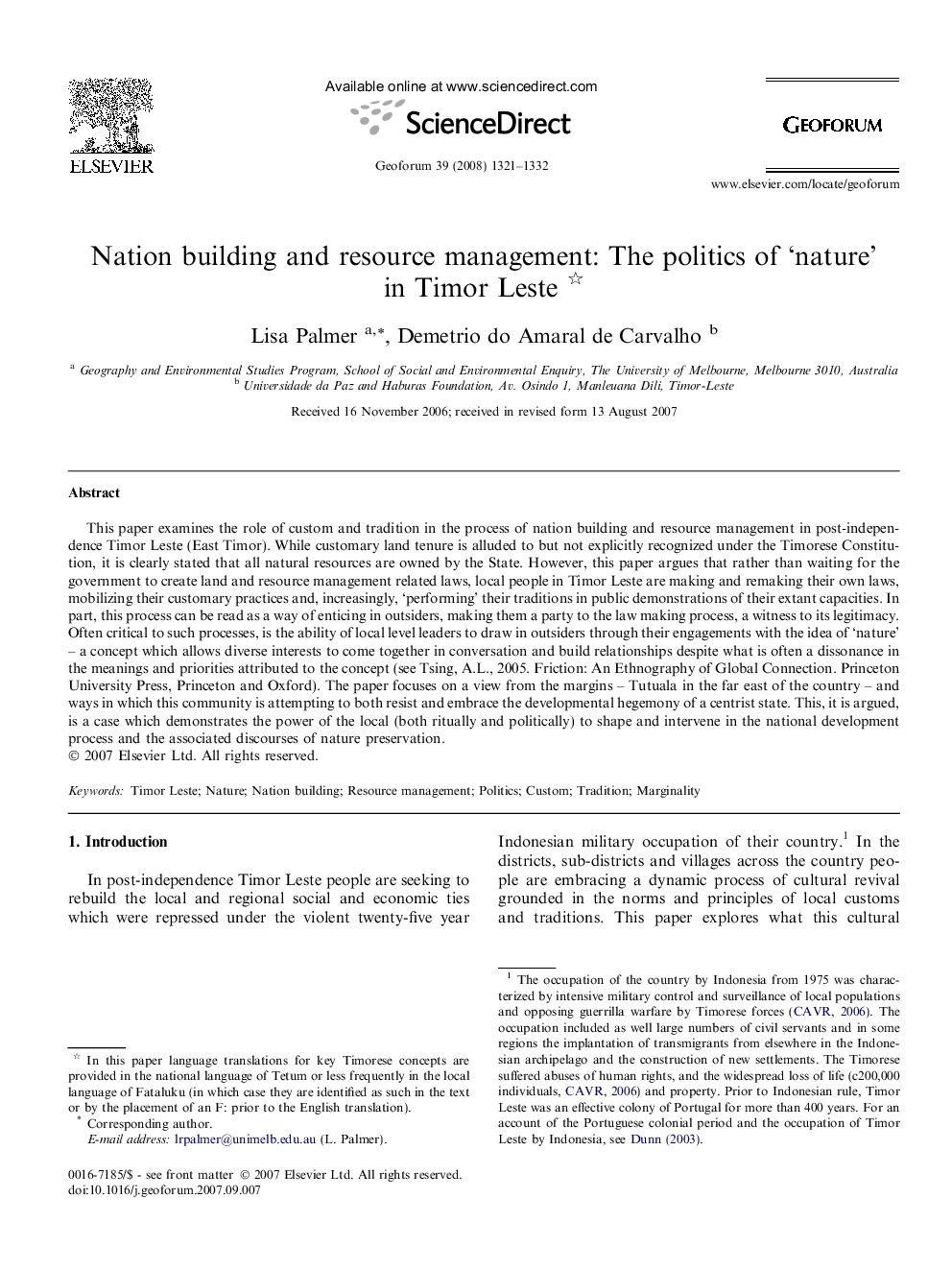| Article ID | Journal | Published Year | Pages | File Type |
|---|---|---|---|---|
| 5075126 | Geoforum | 2008 | 12 Pages |
Abstract
This paper examines the role of custom and tradition in the process of nation building and resource management in post-independence Timor Leste (East Timor). While customary land tenure is alluded to but not explicitly recognized under the Timorese Constitution, it is clearly stated that all natural resources are owned by the State. However, this paper argues that rather than waiting for the government to create land and resource management related laws, local people in Timor Leste are making and remaking their own laws, mobilizing their customary practices and, increasingly, 'performing' their traditions in public demonstrations of their extant capacities. In part, this process can be read as a way of enticing in outsiders, making them a party to the law making process, a witness to its legitimacy. Often critical to such processes, is the ability of local level leaders to draw in outsiders through their engagements with the idea of 'nature' - a concept which allows diverse interests to come together in conversation and build relationships despite what is often a dissonance in the meanings and priorities attributed to the concept (see Tsing, A.L., 2005. Friction: An Ethnography of Global Connection. Princeton University Press, Princeton and Oxford). The paper focuses on a view from the margins - Tutuala in the far east of the country - and ways in which this community is attempting to both resist and embrace the developmental hegemony of a centrist state. This, it is argued, is a case which demonstrates the power of the local (both ritually and politically) to shape and intervene in the national development process and the associated discourses of nature preservation.
Related Topics
Social Sciences and Humanities
Economics, Econometrics and Finance
Economics and Econometrics
Authors
Lisa Palmer, Demetrio do Amaral de Carvalho,
